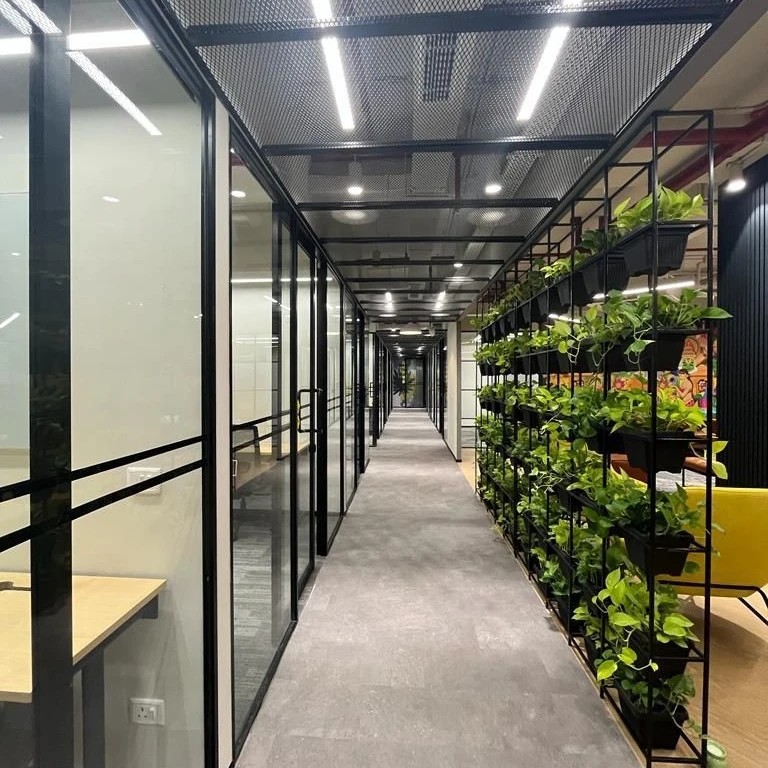As the world becomes more conscious of environmental issues, businesses across industries are seeking ways to reduce their carbon footprint and contribute to sustainability. One industry that has emerged as a surprising ally in this endeavor is coworking. Flexible workspaces, often associated with startups, freelancers, and remote workers, are playing a significant role in promoting environmental sustainability. Here’s how coworking spaces are helping to create a greener future.
1. Efficient Use of Space and Resources
Traditional offices often have large amounts of underutilized space, leading to inefficiencies in energy use, heating, cooling, and lighting. Coworking spaces, however, are designed to maximize the use of every square foot. By accommodating multiple businesses and professionals in a shared environment, coworking spaces reduce the need for each company to maintain its own separate office. This efficient use of space directly translates into lower energy consumption and a reduced environmental impact.
2. Reduced Carbon Footprint Through Commute Reduction
One of the most significant environmental benefits of coworking spaces is the reduction in commuting. Many coworking spaces are strategically located in urban centers, making them accessible to a larger number of people by public transportation, cycling, or even walking. Additionally, coworking spaces often offer flexible membership plans, allowing individuals to work closer to home rather than commuting long distances to a central office. This reduction in daily commuting not only decreases carbon emissions but also reduces traffic congestion and the associated environmental impact.
3. Shared Resources and Sustainable Practices
Coworking spaces promote the sharing of resources, from office supplies to equipment and even amenities like kitchens and meeting rooms. This sharing reduces the demand for new products, which in turn lowers the energy and resources needed for manufacturing and transportation. Many coworking spaces also implement sustainable practices, such as recycling programs, energy-efficient lighting, and eco-friendly office supplies, further contributing to their environmental sustainability.
4. Encouraging Remote Work and Digital Collaboration
The rise of coworking spaces has coincided with the growth of remote work, which has been proven to have a positive environmental impact. By allowing people to work from anywhere, coworking spaces reduce the need for physical office space and the associated energy consumption. Moreover, the emphasis on digital collaboration tools in coworking environments minimizes the need for printed documents and physical meetings, further reducing the workspace’s carbon footprint.
5. Inspiring Sustainable Business Practices
Coworking spaces often attract a community of like-minded individuals and businesses that prioritize sustainability. This environment fosters collaboration on green initiatives and the exchange of ideas on sustainable practices. Many coworking spaces host events and workshops focused on sustainability, encouraging members to adopt eco-friendly habits both in their professional and personal lives. The ripple effect of these practices extends beyond the walls of the coworking space, influencing the wider community and contributing to a more sustainable future.
6. Green Building Certifications and Design
Many coworking spaces are located in buildings with green certifications, such as LEED (Leadership in Energy and Environmental Design), which ensures that the construction and operation of the building meet high environmental standards. These spaces often feature energy-efficient systems, sustainable materials, and designs that maximize natural light and ventilation. By choosing to operate in green-certified buildings, coworking spaces further reduce their environmental impact and set a standard for sustainable work environments.
Conclusion
The environmental benefits of coworking spaces are clear. By promoting the efficient use of space and resources, reducing the need for commuting, and fostering a culture of sustainability, coworking spaces are making a significant contribution to environmental sustainability. As more businesses and individuals embrace flexible work arrangements, the positive impact on the planet will continue to grow. Coworking is not just a trend; it’s a step towards a greener, more sustainable future for the workforce and the world.




